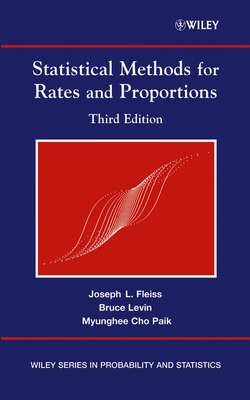Описание книги
This book is to be recommended as a standard shelf reference . . . and as a ‘must’ to be read by all who wish to better use and understand data involving dichotomous or dichotomizable measurements. —American Journal of Psychiatry In the two decades since the second edition of Statistical Methods for Rates and Proportions was published, evolving technologies and new methodologies have significantly changed the way today’s statistics are viewed and handled. The explosive development of personal computing and statistical software has facilitated the sophisticated analysis of data, putting capabilities that were once the domain of specialists into the hands of every researcher. The Third Edition of this important text addresses these changes and brings the literature up to date. While the previous edition focused on the use of desktop and handheld calculators, the new edition takes full advantage of modern computing power without losing the elegant simplicity that made the text so popular with students and practitioners alike. In authoritative yet clear terminology, the authors have brought the science of data analysis up to date without compromising its accessibility. Features of the Third Edition include: New material on sample size calculations and issues in clinical trials, and entirely new chapters on single-sample data, logistic regression, Poisson regression, regression models for matched samples, the analysis of correlated binary data, and methods for analyzing fourfold tables with missing data The addition of many new problems, both numerical and theoretical Answer sections for numerical problems and hints for tackling the theoretical ones A frequentist approach enhanced by the inclusion of empirical Bayesian methodology where appropriate Combining the latest research with the original studies that established the previous editions as leaders in the field, Statistical Methods for Rates and Proportions, Third Edition will continue to be an invaluable resource for students, statisticians, biostatisticians, and epidemiologists.
